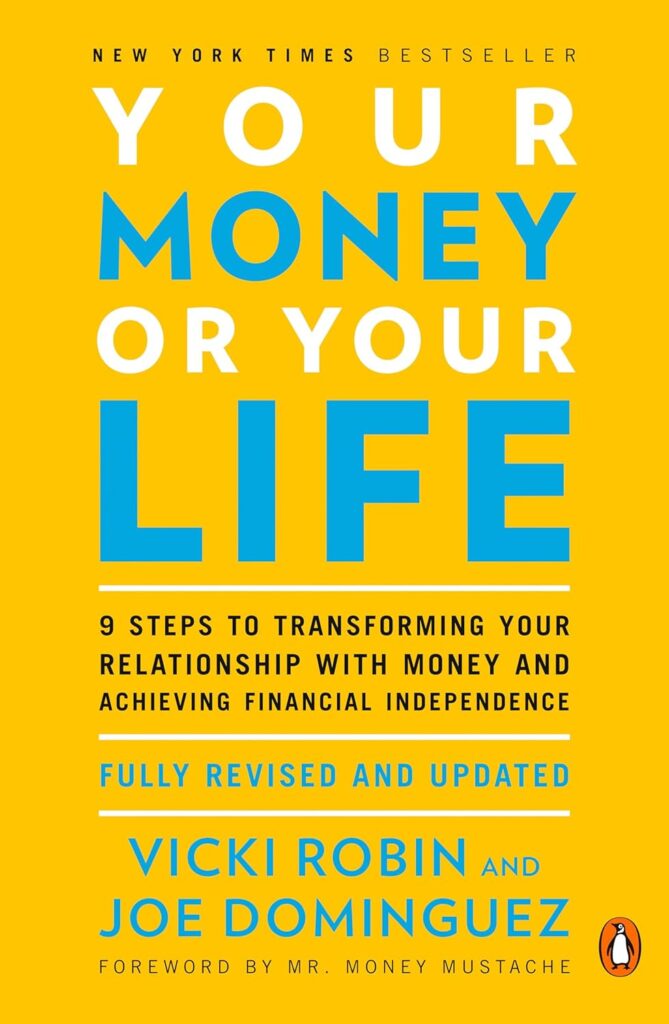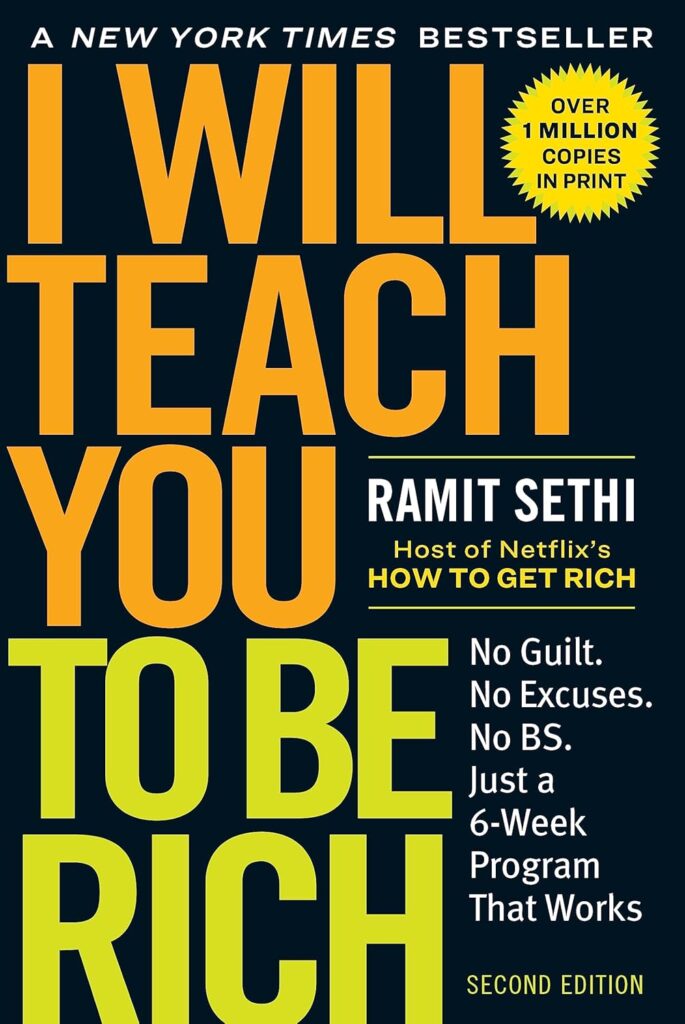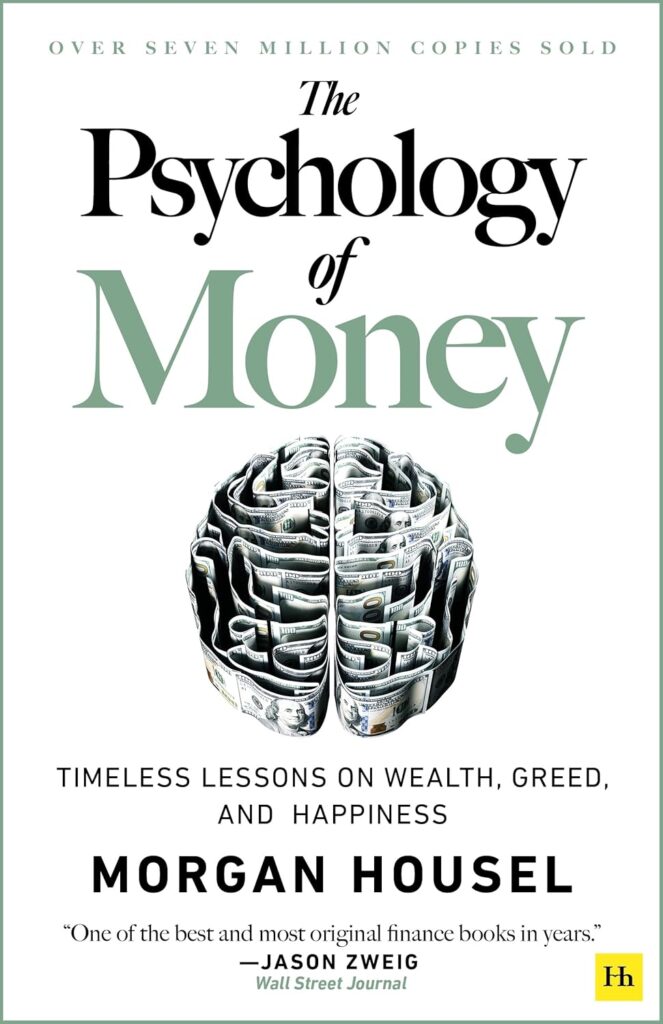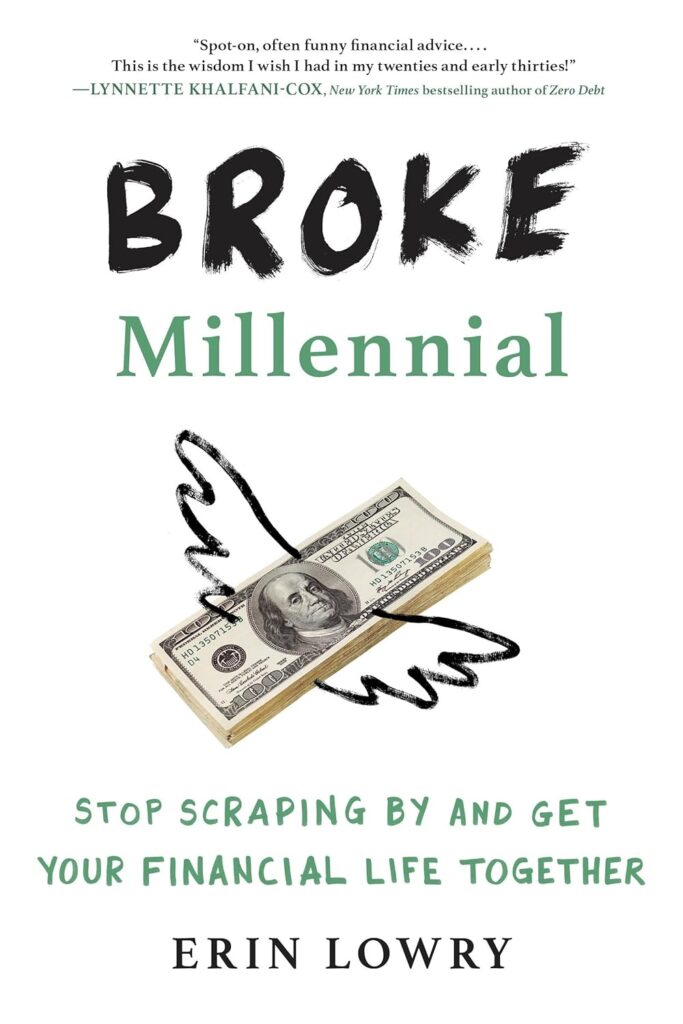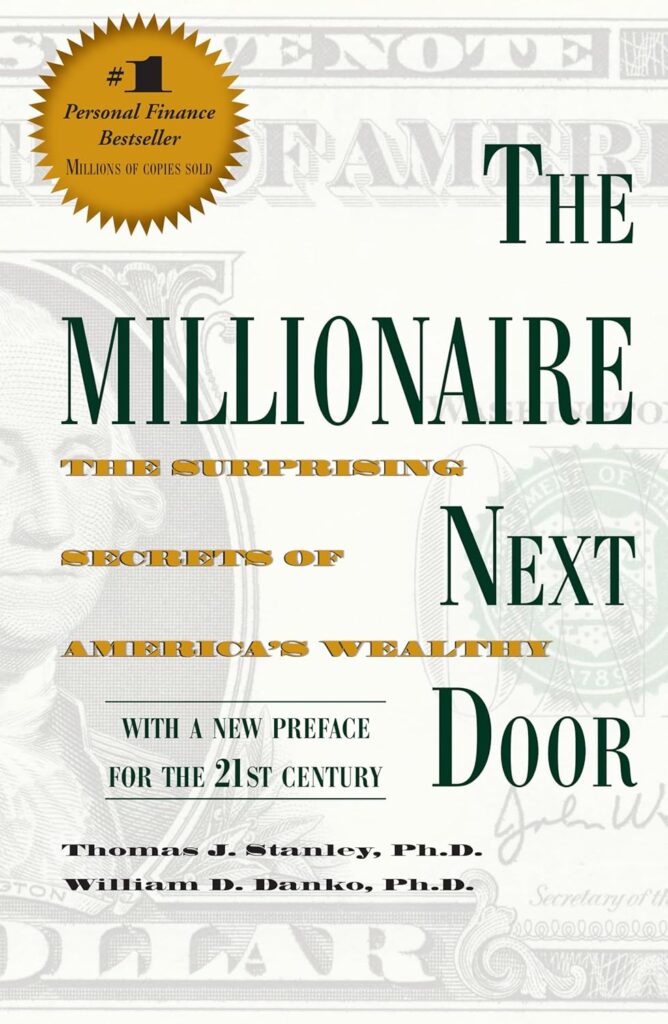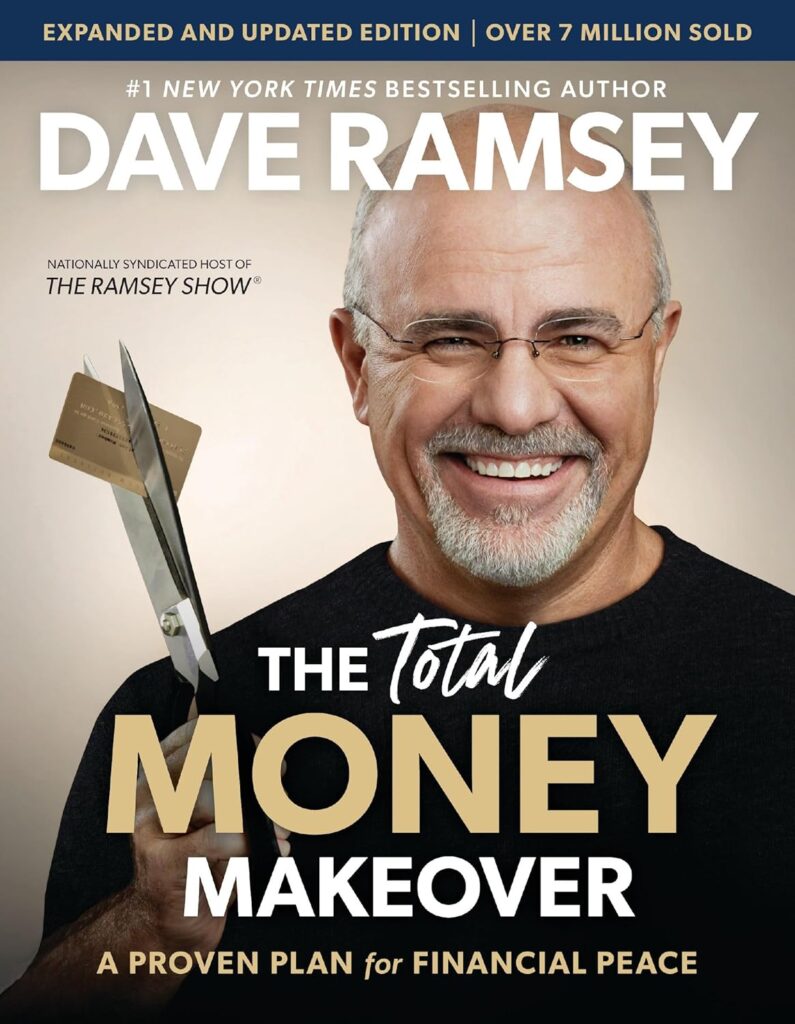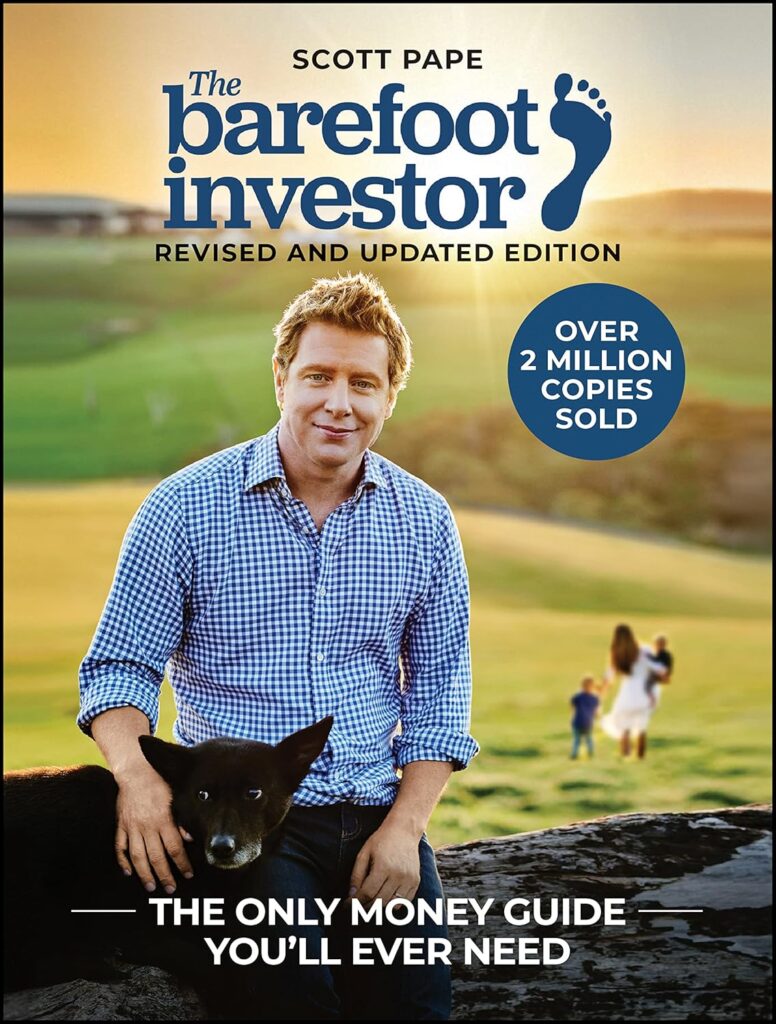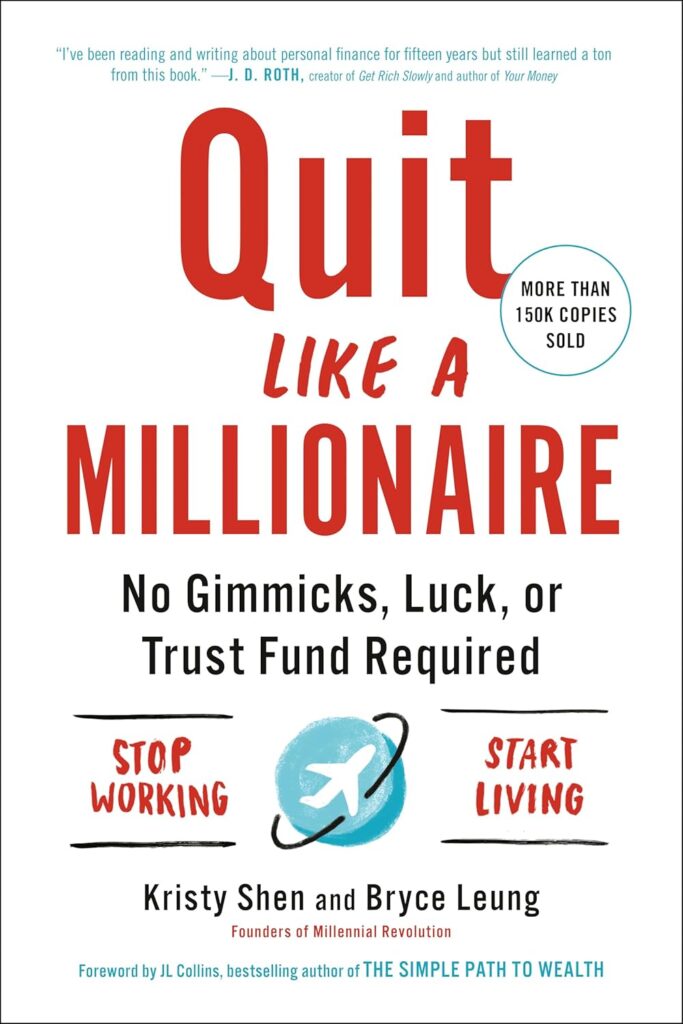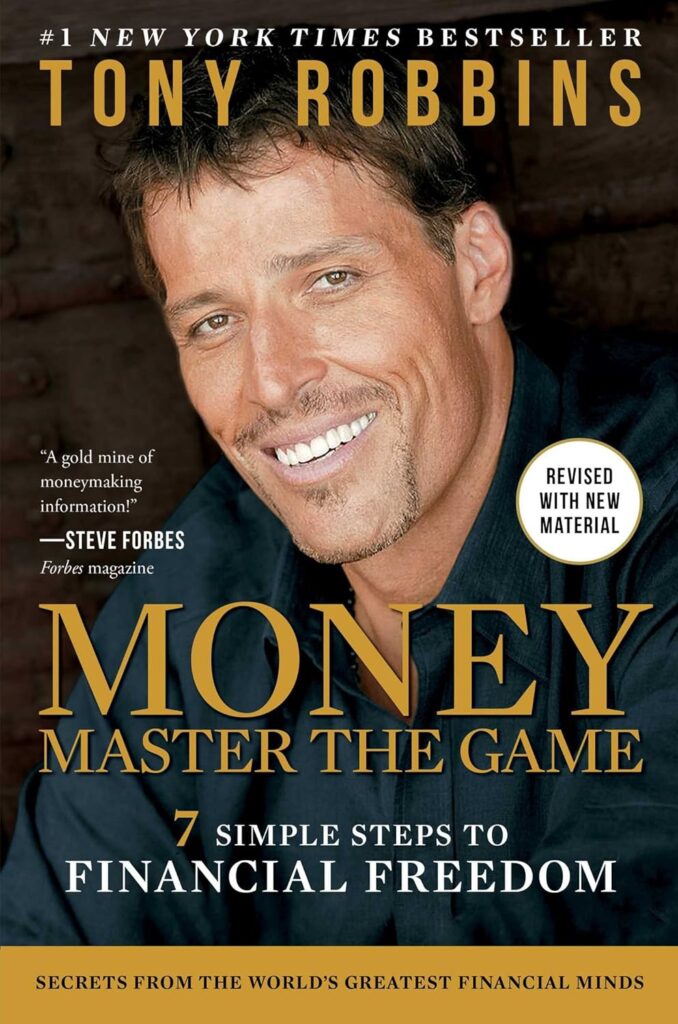Get a free notion reading tracker
10 Must-Read Money Management Books to Help You Achieve Financial Freedom
One of the most powerful tools to build that knowledge is through reading. Whether you’re just starting your money journey or refining your financial strategy, the right book can challenge your perspective, unlock new tools, and motivate you to take action.
We’ve seen how life-changing it can be when someone reads the right book at the right time. In this post, we’ll explore 10 money management books that have empowered countless people to take control of their finances with actionable takeaways you can use today.
Each of these books brings something unique to the table, from budgeting systems and investing strategies to mindset shifts and real-world inspiration. Let’s dive in.
10 Best Money Management Books to Read in 2025
Your Money or Your Life by Vicki Robin & Joe Dominguez
“Your Money or Your Life” is a personal finance book that offers a nine-step program to transform one’s relationship with money and achieve financial independence. The book, fully revised and updated for 2018, provides practical advice on getting out of debt, saving money through mindfulness and good habits, decluttering one’s life, investing savings, and living well for less. It also covers modern topics such as investing in index funds, managing revenue streams like side hustles and freelancing, and tracking finances online.
The book encourages readers to adopt a more deliberate and meaningful approach to their financial lives, emphasizing the importance of understanding the true value of money and aligning financial decisions with personal values. It has been praised for its timeless wisdom and has influenced countless readers since its initial publication. The revised edition includes a foreword by Mr. Money Mustache, a well-known financial blogger who retired early and now writes about frugal living.
I Will Teach You To Be Rich by Ramit Sethi
Don’t let the cheeky title fool you — this book is packed with actionable advice, especially for millennials. Ramit’s tone is refreshing: direct, funny, and deeply practical. He breaks down budgeting, saving, investing, and credit with real examples and scripts you can actually use.
His approach focuses on automating finances so you can “guilt-free spend” on things you love while still saving and investing consistently.
When we hear “budget,” we think: cut out everything fun, drink water with cereal, grow your own coffee beans… right?
But Ramit sees it so differently and I love it.
He says your budget isn’t about restriction. It’s a plan for spending on what actually makes you happy. Cut back on the stuff you don’t care about, so you can spend more on what you do.
The Psychology of Money by Morgan Housel
Housel focuses less on spreadsheets and more on behavior which is often the missing piece in most financial plans. Through short, insightful chapters, he explores why people make irrational money decisions and how to avoid them.
One powerful theme is that personal finance is more about mindset than math. Our upbringing, experiences, and emotions all influence how we save, spend, and invest. This book helps you gain the self-awareness needed to build smarter habits and long-term resilience.
Housel emphasizes that doing well with money isn’t just about what you know, but also about how you behave. He argues that personal history, individual perspectives, ego, pride, marketing, and incentives all play a role in financial decision-making.
Broke Millennial by Erin Lowry
Written specifically for young adults, Broke Millennial breaks down confusing topics like credit scores, budgeting, and student loans in a conversational, non-intimidating tone. Lowry offers practical advice while also acknowledging the emotional and societal pressures many millennials face.
She doesn’t assume you’ve got it all figured out — and that’s what makes the book so helpful. It meets you where you are, then helps you build the financial foundation you need without shame or jargon.
This is the book I wish every 20-something had when starting out. It’s encouraging, realistic, and actually enjoyable to read.
The Millionaire Next Door by Thomas J. Stanley & William D. Danko
Want to know what real millionaires actually do? Hint: they’re probably not who you think. This book is based on decades of research studying America’s wealthy — and it reveals that most millionaires live modest lives, spend less than they earn, and prioritize long-term financial planning over flashy consumption.
It completely debunks the myth that wealth equals status or luxury. Instead, it shows that the path to financial freedom lies in discipline, savings, and consistency — not windfalls or high income.
If you’ve ever felt like building wealth was only for the privileged, this book will convince you otherwise. It’s a great motivator for embracing slow, steady financial growth.
The Total Money Makeover by Dave Ramsey
Dave Ramsey’s no-nonsense style has helped millions get out of debt and take control of their money. While some of his investing advice may be outdated, his baby steps system for paying off debt and building an emergency fund is incredibly effective, especially for beginners.
This book is ideal if you’re in debt and need a clear, step-by-step plan to climb out. Ramsey’s philosophy centers on behavior change: cutting up credit cards, living on a budget, and avoiding lifestyle inflation. His advice is straightforward, and for many readers, the simplicity is exactly what they need to take action.
Smart Women Finish Rich by David Bach
Written with women in mind, this book tackles the unique challenges women face when building wealth — from career gaps and caregiving to financial confidence. Bach lays out a clear framework to help women get organized, understand investing, and plan for long-term goals like retirement.
The book is divided into several sections, each focusing on different aspects of personal finance. Bach begins by discussing the importance of understanding one’s financial situation and setting clear financial goals. He emphasizes the need for women to take control of their finances and make informed decisions about spending, saving, and investing.
One of the key themes of the book is the concept of “paying yourself first.” Bach encourages readers to prioritize saving and investing by setting aside a portion of their income before paying bills or making other expenses. He also provides guidance on how to create a budget, reduce debt, and build an emergency fund.
In addition to practical financial advice, Bach also addresses the psychological and emotional aspects of money management. He discusses common fears and misconceptions about money and offers strategies for overcoming them. The book also includes real-life examples and success stories from women who have achieved financial independence.
The Barefoot Investor by Scott Pape
This Australian bestseller is gaining international traction because of its approachable tone and powerful simplicity. Pape offers a “set it and forget it” strategy that walks you through everything from bank account setups to superannuation (or retirement accounts).
His advice focuses heavily on automation, low-fee investing, and lifestyle design. One of the standout elements is his use of real-life case studies — which show how regular people use his system to get results.
Quit Like a Millionaire by Kristy Shen & Bryce Leung
This book breaks all the rules — in the best way. Written by a former immigrant turned FIRE (Financial Independence, Retire Early) millionaire, it explores how unconventional thinking, smart investing, and frugality can help you escape the rat race.
What makes it stand out is its mix of storytelling, humor, and practical advice. The authors prove that financial freedom isn’t just for high earners — it’s for anyone willing to rethink how they approach work, life, and money.
If the idea of early retirement excites you, but you’re not sure it’s realistic, this book will challenge what you think is possible.
Money: Master the Game by Tony Robbins
This thick, information-rich book gathers wisdom from some of the top investors and financial minds in the world. Robbins breaks it all down into accessible strategies for everyday people and interviews names like Ray Dalio and Warren Buffett to support his advice.
While it can be dense at times, it’s full of gold if you’re ready to take your finances seriously. From investment allocation to understanding fees, taxes, and market psychology, this is a masterclass in long-term wealth building.
If you’re past the beginner stage and ready to think bigger, Money: Master the Game is a powerful next step.
Final Thoughts
Reading even one of these books can change your financial trajectory. Each one offers a different voice, philosophy, and roadmap which means there’s something here for everyone, no matter your age, background, or current money situation.
Start with the book that speaks most to your current challenge. Are you in debt? Focus on Ramsey or Lowry. Looking to grow your mindset? Try Housel or Robin. Ready to build wealth long-term? Robbins and Shen are great picks.
Financial freedom is possible and these authors are proof. Learn from their stories, apply their strategies, and take action.

